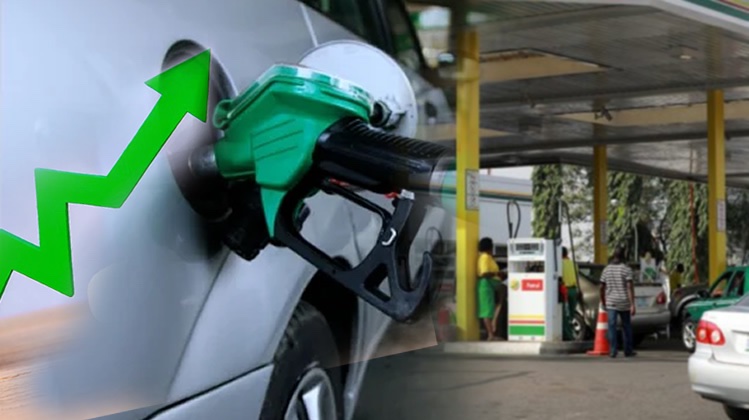
Could Petrol Prices in Nigeria Drop Below N400 Per Litre? Here’s What Experts Say

The recent buzz around a potential drop in petrol prices in Nigeria has sparked hope among citizens grappling with the high cost of living.
According to a statement from the Crude Oil Refinery-owners Association of Nigeria (CORAN), the price of Premium Motor Spirit (PMS), commonly known as petrol, could plummet to below N400 per litre.
This projection comes on the heels of a significant decline in global crude oil prices, which have reportedly fallen by more than 8%, as highlighted by industry sources.
For a country where fuel prices directly impact transportation, goods, and overall economic activity, this news could signal a much-needed relief for millions of Nigerians.
The backdrop to this development is a global crash in crude oil prices, a phenomenon influenced by multiple factors.
One contributing element is the decision by the Organisation of the Petroleum Exporting Countries and its allies (OPEC+) to increase oil output, bringing an additional 411,000 barrels per day to the market starting in May 2025, up from a previously planned 135,000 barrels per day.
This move has put downward pressure on oil prices, creating a ripple effect that could benefit oil-importing nations like Nigeria.
Additionally, the landing cost of petrol in Nigeria has already seen a slight reduction, dropping from N885 to N865 per litre, according to the Major Energies Marketers Association of Nigeria.
If crude oil prices continue to decline—potentially reaching as low as $50 per barrel—CORAN argues that petrol could be sold for as little as N350 per litre, a stark contrast to current rates.
To put this into perspective, data from the National Bureau of Statistics (NBS) reveals the steep rise in petrol prices over the past few years.
In January 2023, the average price of petrol in Nigeria was around N257 per litre. Fast forward to January 2024, and that figure had skyrocketed to N668.3 per litre, equivalent to roughly $0.41 at the time.
This dramatic increase has placed a heavy burden on Nigerian households, many of whom rely on petrol for daily commuting, powering generators, and running small businesses.
A potential drop to below N400 per litre would not only ease financial strain but also have a broader impact on inflation, which has been a persistent challenge in the country.
Interestingly, some observers have linked this global oil price decline to policies championed by former U.S. President Donald Trump.
During his campaign, Trump pledged to slash energy prices by boosting oil and gas production, a promise he claimed would cut energy costs in half within 12 months of taking office.
While his assertions about the U.S. having the largest oil reserves were debunked—several countries, including Venezuela and Saudi Arabia, hold larger reserves—his administration’s focus on increasing energy production and reducing environmental regulations may have contributed to the current oversupply in the global oil market.
A user on X credited Trump’s policies for influencing this trend, suggesting that his commitment to lowering energy costs is having a tangible impact, even in far-off nations like Nigeria.
However, the road to lower petrol prices in Nigeria is not without obstacles.
The country’s reliance on imported crude oil, despite being a major oil producer, has long been a point of contention.
CORAN has expressed frustration over the need to source crude from foreign nations, a challenge exacerbated by the Nigerian National Petroleum Company Limited (NNPCL) falling short of its crude delivery targets to local refineries like Dangote.
In October 2024, the NNPCL initiated a naira-for-crude deal with Dangote Refinery to help stabilize fuel prices, but delivery has been inconsistent, with only 280,000 barrels per day supplied against a promised 385,000 barrels per day.
Sustaining such initiatives, alongside favorable global oil prices, will be crucial for Nigeria to achieve the projected price drop.
Public reactions to the news have been mixed, as seen in responses to the Nigeria Stories post on X.
While some Nigerians expressed skepticism, calling the announcement “another story” or questioning its feasibility, others remain hopeful, praying for a positive outcome.
The potential reduction in petrol prices could be a game-changer for Nigeria’s economy, but it hinges on both global market trends and domestic policy decisions.
For now, Nigerians are watching closely, hoping that this promise of relief at the pump becomes a reality.


